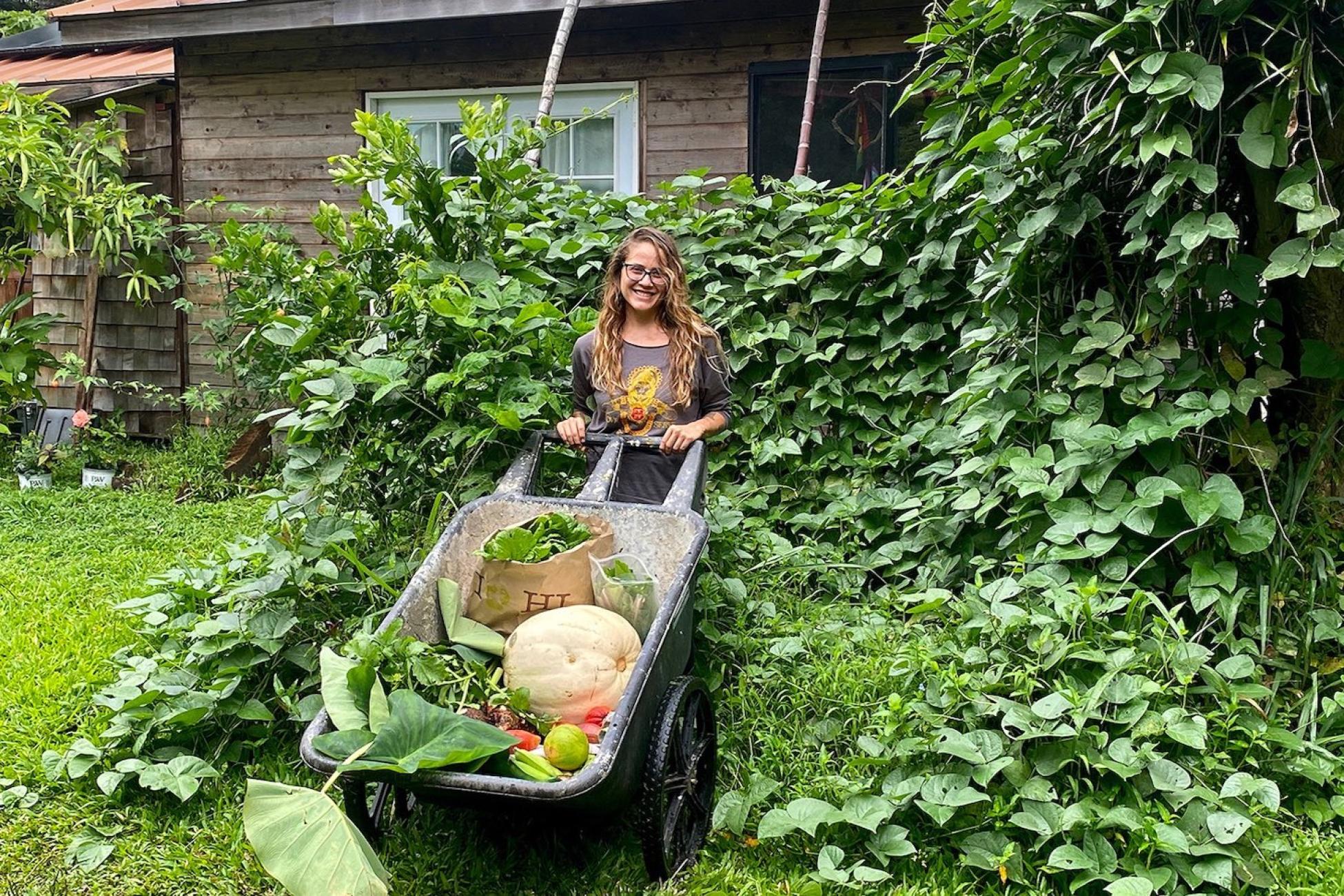So, you packed your bags, crossed an ocean or two, and landed someplace unknown.
Sometimes, when we travel, we have this romantic idea about how we will try all the new things and become a completely new person. But in reality, the new place does not rid us of our old habits. It also does not transform our reality magically: Once somewhere new, it turns out we are still who we are, and all our needs and wants have followed us right across that ocean.
And therefore, the question arises: What do we eat?
Yes, I know, prosaic. But you know how it is: You land, you get off that plane and before you even make it to your cabin, bungalow, rental apartment, or other habitation, you have to think “food.” Where to buy it? What are the prices? What’s fresh? And most importantly, do they have peanut butter?
I have this memory of an American exchange student visiting my home country. They had brought a jar of peanut butter, on which they pretty much had lived their whole stay, weary of the Eastern European borschts and pierogis. At the time, I had thought, “how silly, just eat like the locals.” But now, after having travelled quite a bit, I have to admit that I, too, have my “peanut butter.” Don’t we all?
Whether it’s the gluten-free bread, fresh lemons, a special brand of salt, or a cup of latte from Starbucks, we all have our must-haves. However, when you find yourself in an unknown land, oftentimes those items are either unavailable or overpriced.
And that, my friends, was our dilemma here, in the remote corner of the Big Island, Hawaii, where we volunteered at a nature retreat and permaculture learning centre called the Earthsong Foundation for two months.
Earthsong is situated in a very rural area (the district of Ka’u) and the nearest store that has the items the visitors are used to is an hour away and over-priced ($12 yogurt and $10 bread anyone?). After a few lengthy and shockingly expensive grocery trips, we did what we should have done right away—we asked the locals what they ate.
The Earthsong stewards, Elena and Ryan are both originally from the United States but have travelled and immersed themselves in different cultures. They also steward a homestead in a remote location in Panama, so they are as savvy as they come.
One of the first things Elena told us was to get over the idea of scarcity. Guilty as charged: Our first impression of the area and the food situation here was, “There was nothing to eat!” And yet we were on an island, brimming with tropical fruits and all kinds of foods growing all year long! Those of you who have been to islands and small rural communities, might have encountered the same dilemma; in theory, there should be a ton of food there and yet, you're having a hard time finding what to eat.
What I learned was, flexibility was key, which meant that eating like the locals was the healthiest and the cheapest option. That meant having to try things I never tried in my life, figuring out how to cook veggies I had never seen, and the most painful thing of all, changing habits and routines.
When you travel to the less touristy areas of the Big Island, that Starbucks might have to be swept out for a cup of home-made herbal tea, and that peanut butter might have to be replaced with the macadamia-nut butter (the area is known for its mac nuts), you might have to give up bread for a while or eat an exotic, locally abundant fruit instead of the store-bought apples you’re used to.
The second most important thing that Ryan talked to us about was simplicity. A good meal does not need a ton of complicated ingredients. In fact, according to Ryan, who spent a lot of time researching and experimenting with healthy food options, too many ingredients make it heavy on digestion. If you dare to eat local, you will get so much nourishment that comes from fresh, locally grown in-season fruits and veggies, that a simple dish of spinach and eggs (a staple dish here at Earthsong, where the hearty Okinawa spinach is prolific and the local chickens produce the freshest eggs) could give you energy for that ambitious hike you planned, or some extensive gardening.
Of course, it gets more complicated for those travellers who have dietary restrictions, be it due to allergies and intolerances, or moral commitments. For example, here on the Big Island, the easy local go-tos are beef and fish, which is a no-no for the vegetarians and vegans among us. But it is possible to stick to your vegan diet here as well: You might have to swap your zucchini for the local chayote and skip the soy-based products and meat replacements. The upside is that you would have to turn to whole foods; unprocessed and right from the earth.
Here at Earthsong there are many tropical vegetables growing year-round, including chayote, butternut, kabocha, and pumpkin squash, and many nutritious greens including chaya, kale, bok choy, mustard greens and lettuce. Sure, it might be challenging to skip the variety you are used to at home: all the Gardein and Tofurky that spruce up your meals and delight your taste buds. But if you can change your angle on food, and instead of seeing it as something to be entertained by, see it as a source of nourishment and healing, you might enjoy the simplicity of your diet and form some new habits; ones that might turn out much more beneficial for you in the long run.
All in all, what I got from the food adjustments was a sense of freedom: I could go anywhere in the world and I’d be fine. Next time I land in an unfamiliar environment, instead of dipping into that metaphorical peanut butter jar, I’ll take my time sourcing my food, meet some cool local people, and truly, enjoy my meal.
Add this article to your reading list




